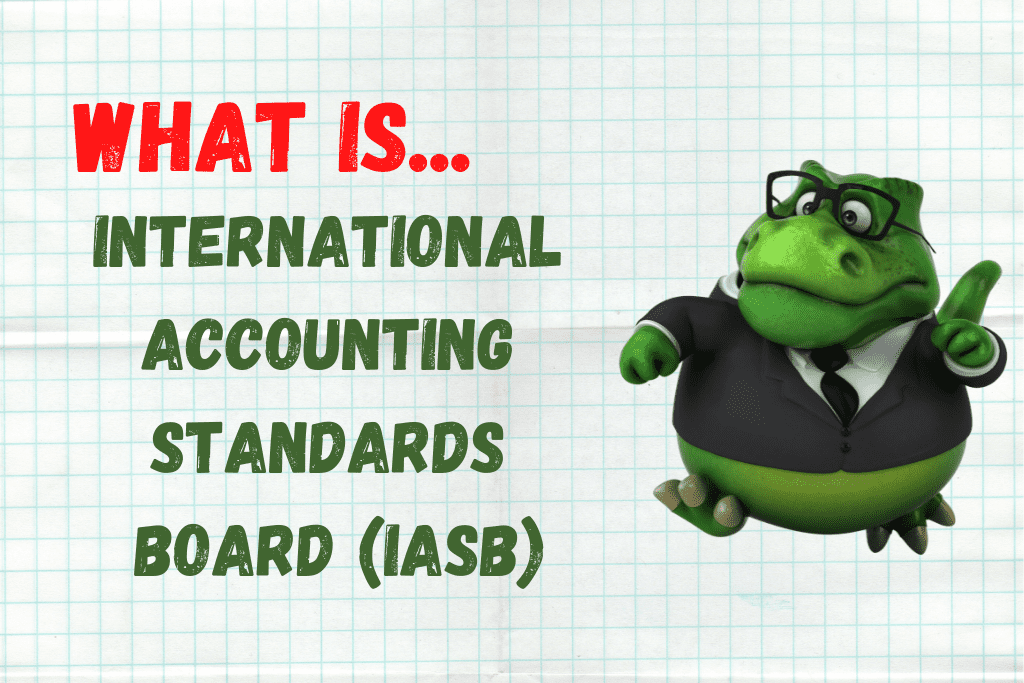In the United States our financial accounting standards are issued by the Financial Accounting Standards Board (FASB). The international business community has its own version called International Accounting Standards Board (IASB.) The IASB is responsible for creating accounting standards for businesses to follow to ensure all businesses are playing by the same rules.
What is an Accounting Standard?
An accounting standard is a set of rules and policies put in place to ensure all accounting functions are being handled in the same way from company to company and industry to industry. Accounting standards provide accounting firms with guidance on how to advise clients on how to record transactions and how to apply accounting rules.
What is the Purpose of the IASB?
The purpose of the IASB is to develop high-quality, understandable, enforceable and globally accepted standards to protect the public and preserve public faith in the financial markets.
What is the Difference Between IASB and FASB?
Financial Accounting Standards Board (FASB) is a U.S. based independent organization charged with establishing financial accounting and reporting standards for businesses and organizations based in or doing business in the United States. FASB is receives its funding from U.S. Securities and Exchange Commission. International Accounting Standards Board (IASB) is based in London and is charged with establishing financial accounting and reporting standards for global businesses. IASB develops and approves International Financial Reporting Standards (IFRS.)
How are IFRS Accounting Standards Determined?
The IASB has a thorough and transparent process in place to develop accounting standards. The first step is to determine what the priorities are.
- What are the hot button issues or areas of confusion that need clarifying?
- How are those issues currently being recorded or interpreted currently?
- Is the issue one that needs to be addressed?
- An analysis is done, more research conducted as needed, public hearings conducted.
- A new standard is born.
- Follow up to ensure accountants understand and apply the standard and to address any shortcomings or questions that arise in the implementation.
For more information about the process used to determine accounting standards, visit the IFRS website: ttps://www.ifrs.org/about-us/how-we-set-ifrs-standards/
What is the Difference Between GAAP and IFRS?
Where the US has GAAP (Generally Accepted Accounting Principles), the international business community has IFRS (International Financial Reporting Standards). Although there are many similarities, there are some important differences:
- GAAP is rules-based.
Rule-based systems are more rigid in application. There is less room for interpretation of the rules.
- IFRS is principles-based.
This means IFRS leaves more room for interpretation. Under IFRS, companies have more leeway in how they interpret the standard. That interpretation is then noted through the use of long disclosures on financial statements to explain how and why something was done a certain way.
To bring that point home, let’s say you have a household rule that everyone must clean their plate before leaving the table. That’s GAAP. But if you changed your rule to be that everyone should clean their plate before leaving the table, now there is some room for interpretation. That’s IFRS.
One specific item that differs is the costing of inventory. Under GAAP, companies can use FIFO, LIFO, or Weighted Average Cost to value inventory. Under IFRS, companies are not permitted to use LIFO.
Why is the IASB Important?
The major goal of the International Accounting Standards Board is to maintain stability and transparency globally. It is standard in the European Union and many Asian and South American companies.
For an overview of IASB, watch this video:
For more information about Generally Accepted Accounting Principles, check out this article:
-
What is Equity in Accounting and Finance?
In Accounting and Finance, Equity represents the value of the shareholders’ or business owner’s stake in the business. Equity accounts have a normal credit balance. Equity increases on the credit
-
Understanding Financial Statements | Accounting Student Guide
What is a Financial Statement? Financial Statements are a set of reports summarizing the activities of a business or organization. Much like a series of x-rays shows different views of
-
What is Treasury Stock?
Treasury Stock represents a corporation’s stocks that were previously issued and sold to shareholders. The corporation reacquires the stock by purchasing the stock from shareholders. Treasury Stock reduces the number
-
What is Stockholders’ Equity?
Stockholders’ Equity is the difference between what a corporation owns (Assets) and what a corporation owes (Liabilities). Stockholders’ Equity is made up of Contributed Capital and Earned Capital. Contributed Capital
-
What is Paid in Capital?
What is Contributed or Paid-in Capital? Contributed Capital is also called Paid-in Capital. It includes any amounts “contributed” or “paid in” by investors or stockholders through purchasing of stocks or
-
What is the Difference Between Debt Financing and Equity Financing?
When businesses needs funds to expand or grow the business, that capital can come from three sources: Funds from profits Funds from debt Funds from equity Funding business growth from

